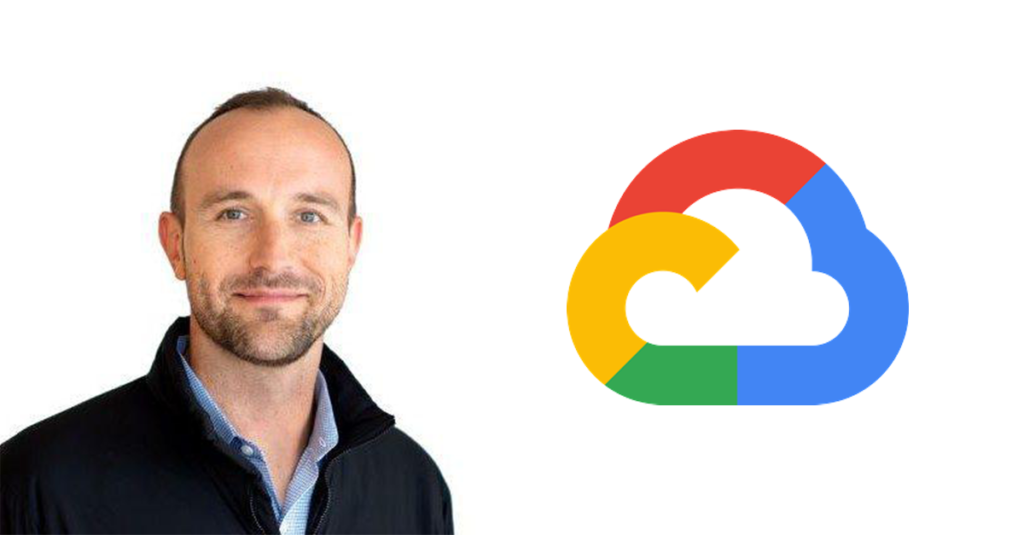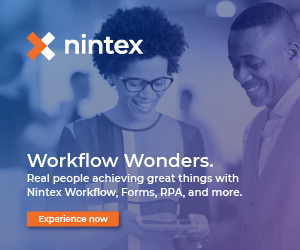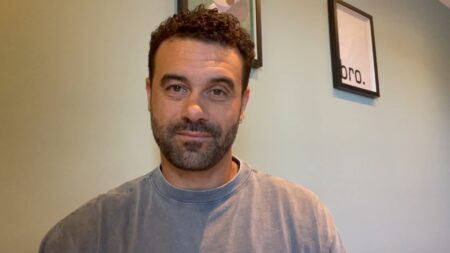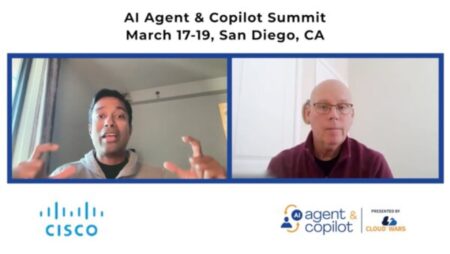As Google Cloud has surged from the bottom of the Cloud Wars Top 10 rankings to near the top, a major reason has been the customer-first mentality and culture instilled by CEO Thomas Kurian since his arrival in 2019.
And while Google Cloud has certainly made some dazzling technological advances during that time, its unique and high-impact Office of the CTO—aka OCTO—has become a powerful source of collaborative innovation with major customers that is helping drive long-term multibillion deals.
Never heard of it? Aw, heck, don’t feel bad—until recently, Google Cloud has rarely talked about its OCTO organization and philosophy, which to the best of my knowledge is without peer among the superb companies in the Cloud Wars Top 10, where Google Cloud is ranked #3 behind #1 Microsoft and #2 Amazon.
In a recent roundtable with industry analysts, OCTO managing director Will Grannis outlined the organization’s goals and objectives and offered some insights into its impact on Google Cloud’s growth, which has averaged about 45% over the past few quarters.
But to me, the most striking of all of the comments made by Grannis was his simple but breathtakingly bold description of the actual CTO within this Office of the CTO.
“The organization is called Office of the CTO, but in fact we have no formal CTO. Instead, our customers act as our CTO,” Grannis said on the call, which included a guest appearance by Twitter CTO Parag Agrawal.
Now, some folks might look at that as overly cute—a gimmick to grab attention. Others might try to shrug it off and say “Big deal—we have something like that too.”
But I suspect the most honest will say, “Hey—that’s probably how big customers are going to demand that we engage with them in this relentlessly disruptive business.”
And the slide below from the OCTO presentation underscores the three areas of primary focus in customer engagements.
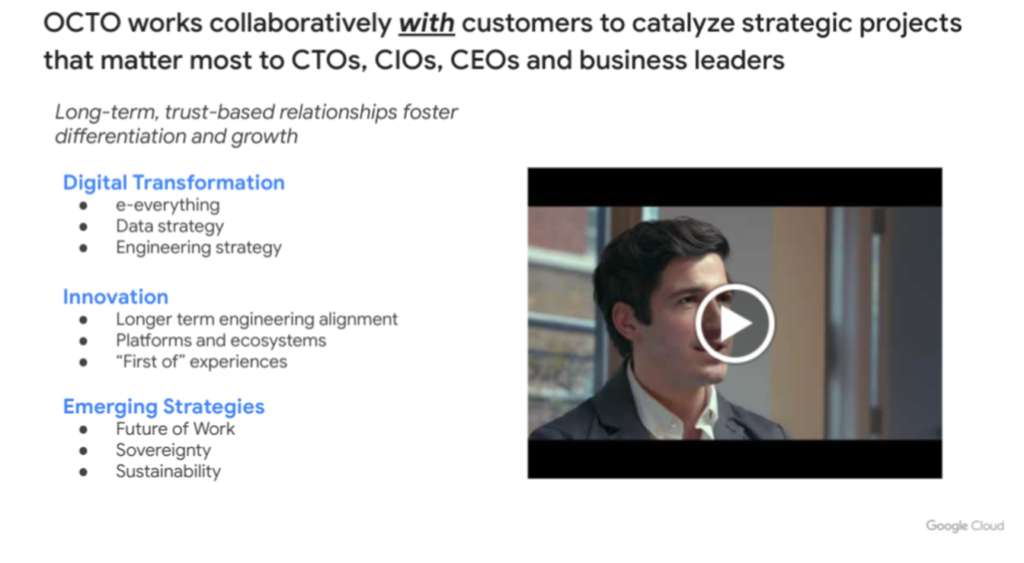
The key focus for OCTO, Grannis said, is deep and ongoing collaborative innovation with top global customers and partners that includes but is not limited to discussions about technology.
The goal in all such engagements is deep and broad co-innovation and co-creation, with technology initially taking a backseat to strategy and business issues as well as discussions about major societal trends having an impact on both people and businesses.
Grannis described that as “market-shaping via community engagement,” which all big tech companies do to some extent—although I’d say some do it in a very limited way and with very limited impact. But OCTO seems to have hit its stride over the past couple of years, based on these insights offered by Grannis:
- the OCTO team can tap into resources and business units from all across Google and parent Alphabet;
- the OCTO team is comprised of high-achieving engineers and technologists from across the company who are eager to pursue new ways of driving innovation in close concert with customers;
- while the organization’s initial charter included a KPI stating that projects should result in actual placement within production systems, that KPI has since been removed, giving OCTO team members more freedom and latitude to pursue what Grannis pointedly called “exploration”;
- big projects are sometimes initiated by major customers, and sometimes by the OCTO team itself; and
- in 70% of engagements, the leader from the customer side is the CTO, while in the remaining 30% it’s CEOs, CIOs, CDOs, LOB leaders, or even a fairly new title that Grannis said is becoming more common: senior VP of AI.
And as Google Cloud’s growth rate has, under Kurian, become the highest of any major cloud provider, OCTO has been playing an increasingly important role, Grannis said. Relative to 2020, active projects are up 20%, but it’s in the company’s megadeals where the OCTO team has had its biggest impact.
OCTO has become “very involved” in many of the 5-year and 10-year multibillion-dollar deals that Google Cloud has reached across a range of industries, he said, and it is hard to imagine how or why that trend will not continue.
After all, as Twitter CTO Parag Agrawal said on the call, “Co-creation is where OCTO really fits in.”
RECOMMENDED READING
Salesforce Targets ServiceNow: Slack Delivers “Human Workflow”
SAP Buries the Past: Calls Out Legacy ERP, Welcomes Modular Cloud ERP
Snowflake CEO Rips Microsoft, Amazon, Google for Outdated Architecture
As SAP Downgrades Microsoft Relationship, IBM Rushes In
Snowflake Hits Another Milestone: 1 Billion Queries in 24 Hours
The Marc Benioff Show: Inside Salesforce’s Greatest Quarter Ever
Salesforce Vs. SAP: Can Marc Benioff Overtake SAP as #1 in Enterprise Apps?
Microsoft Reorganization Merges Data and AI with Apps and Industries
Data Clouds: Tech’s Next Big Innovation or Just Another Buzzword?


